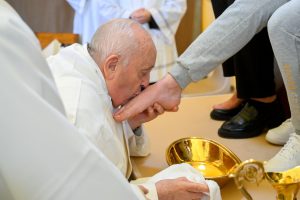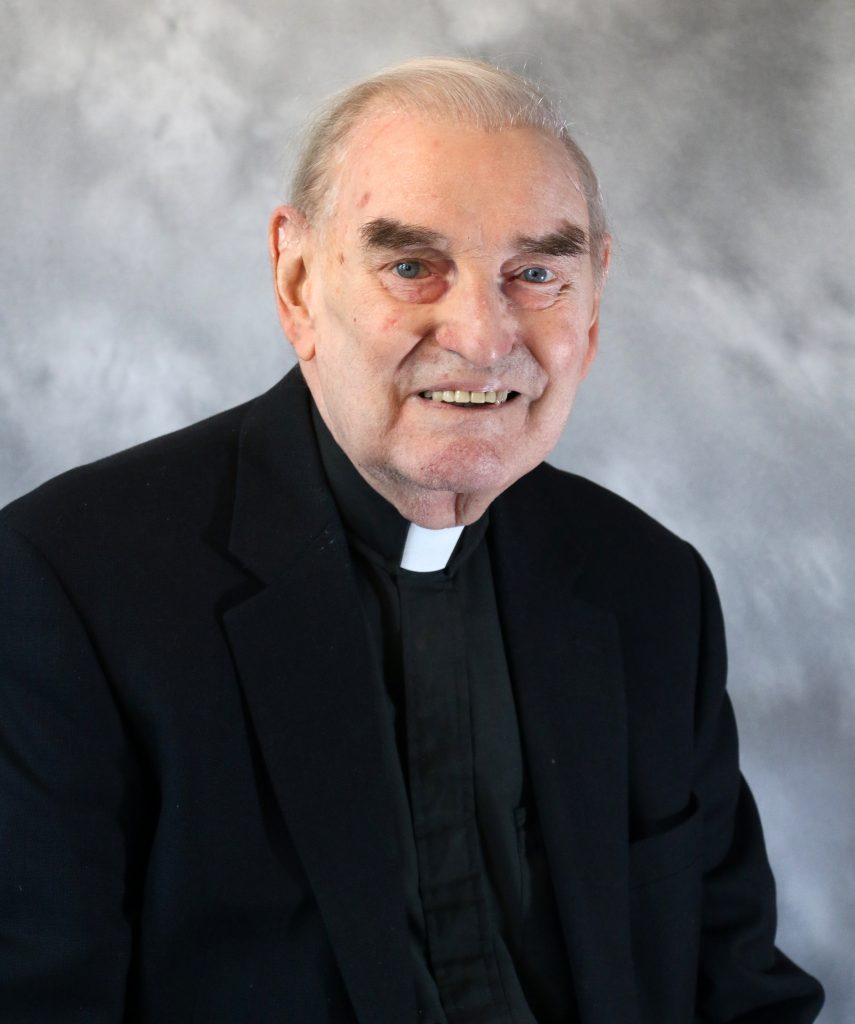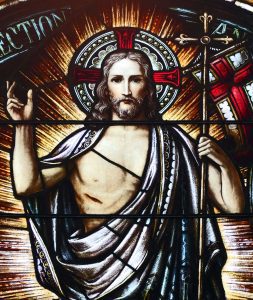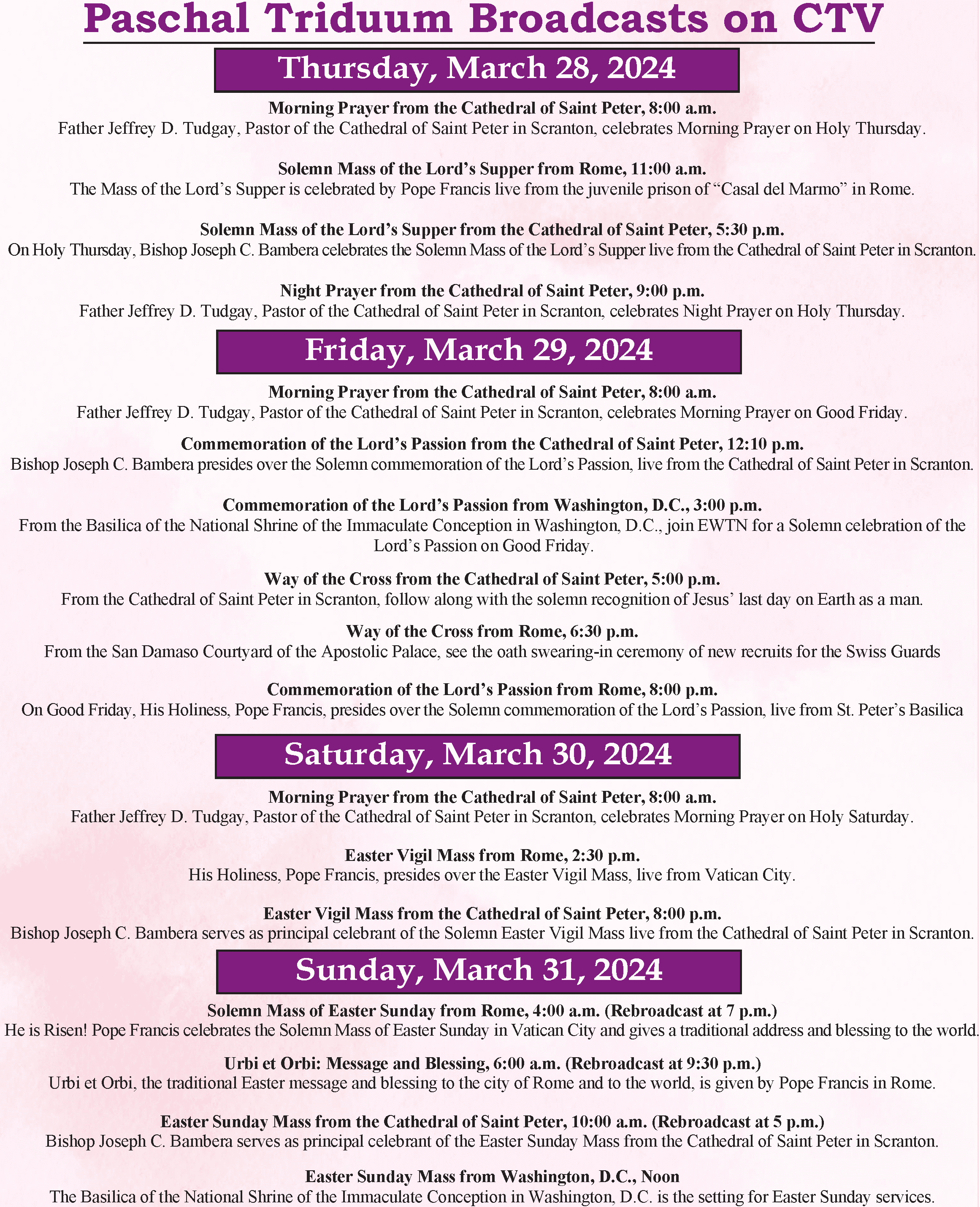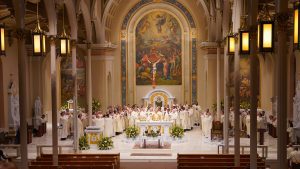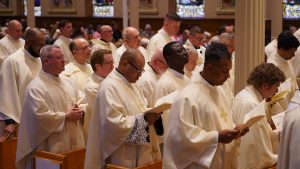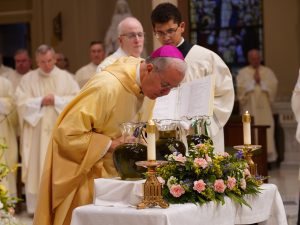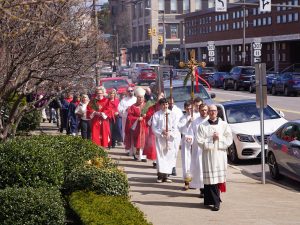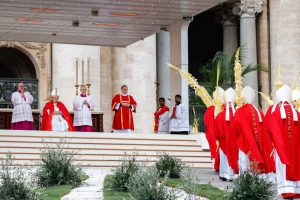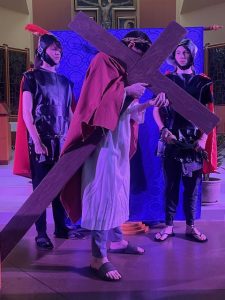SCRANTON – In the presence of several hundred people, the Most Rev. Joseph C. Bambera, Bishop of Scranton, celebrated the Evening Mass of Lord’s Supper at the Cathedral of Saint Peter on March 28, 2024.
As the Sacred Triduum began, Bishop Bambera acknowledged the three important gifts being celebrated at the Mass.
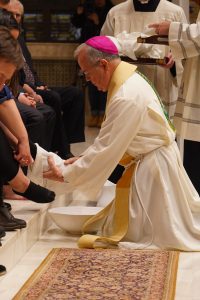
“On this night, we give thanks for God’s abiding presence, for his presence given to us in the Eucharist, for the blessing of priestly ministry, and for the invitation given to all the baptized, to serve, to follow in the footsteps of Jesus, and to reach out to our brothers and sisters in care,” the Bishop said.
After the homily, Bishop Bambera knelt to wash and dry the feet of a dozen parishioners, following the example of Jesus at the Last Supper.
Rev. Gerald W. Shantillo, Vicar General and Moderator of the Curia, delivered the homily, reflecting on the gifts of service, priesthood, and the Eucharist.
“As Jesus gives us these three gifts at the Last Supper, He fully recognized that in doing so, we are called to share in the risk of His mission, even when it makes us uncomfortable,” Father Shantillo said.
When it comes to serving others, he raised many of the questions people raise when they are hesitant to serve: Will it take too much time? Will others judge me? Do they deserve it?
“Let us pray for a world where priests, families, parishes, countries, and government leaders want to wash the feet of others, want to love, compromise, show mercy, forgive, and sacrifice for peace,” he said.
In regards to the priesthood, Father Shantillo explained God does not call men to the priesthood for the individual themselves, but for those he will serve.
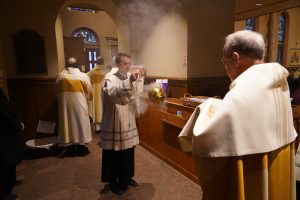
“We thank God for the gift of the priesthood and for men who take a risk to dedicate their lives to serve Christ and His Church,” he said. “Let us pray for more priests and for the seminarians who serve here tonight.”
Finally, in speaking about the Eucharist, Father Shantillo reminded the faithful that the Eucharist’s true end is not simply in the act of Adoration or consumption, “but rather our healing, forgiveness, transformation, strength and conversion.”
Following the Mass of the Lord’s Supper, Bishop Bambera led a Eucharistic procession to the Altar of Repose where the faithful were invited to spend time in silent prayer and meditation.

